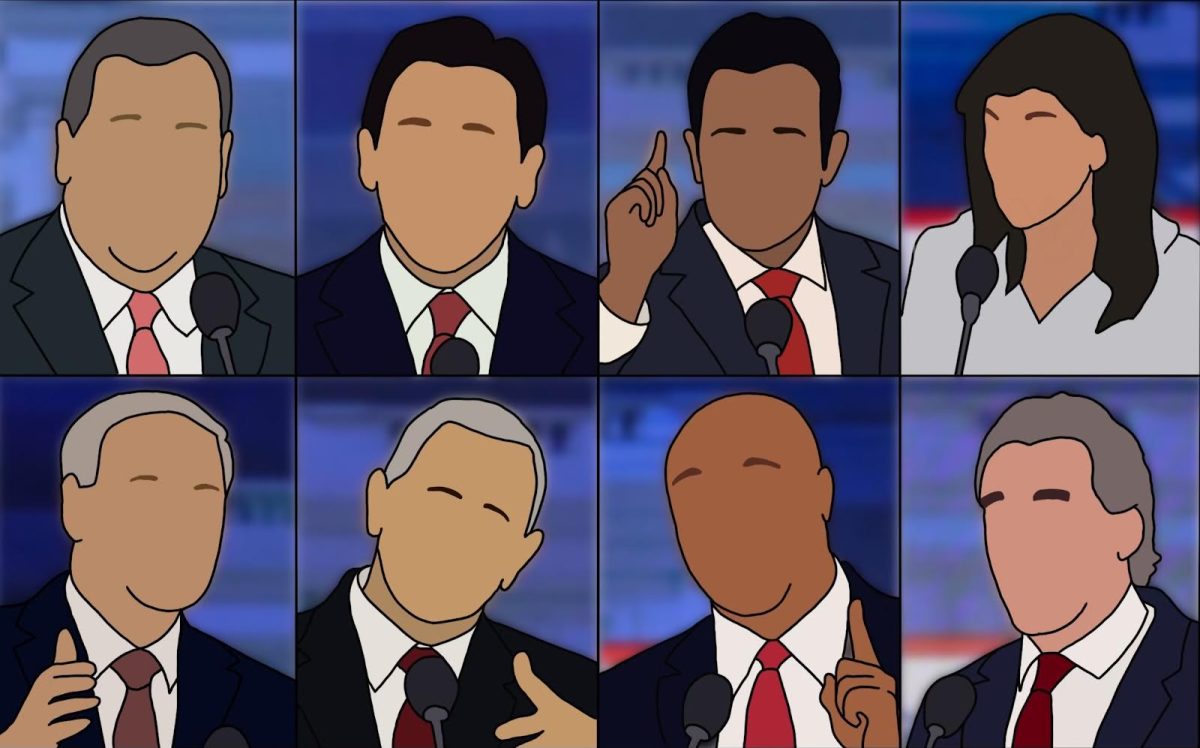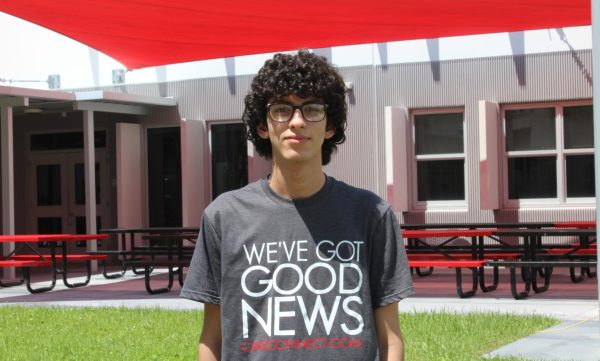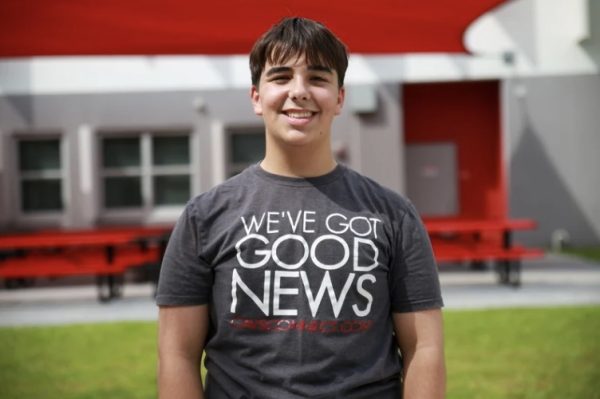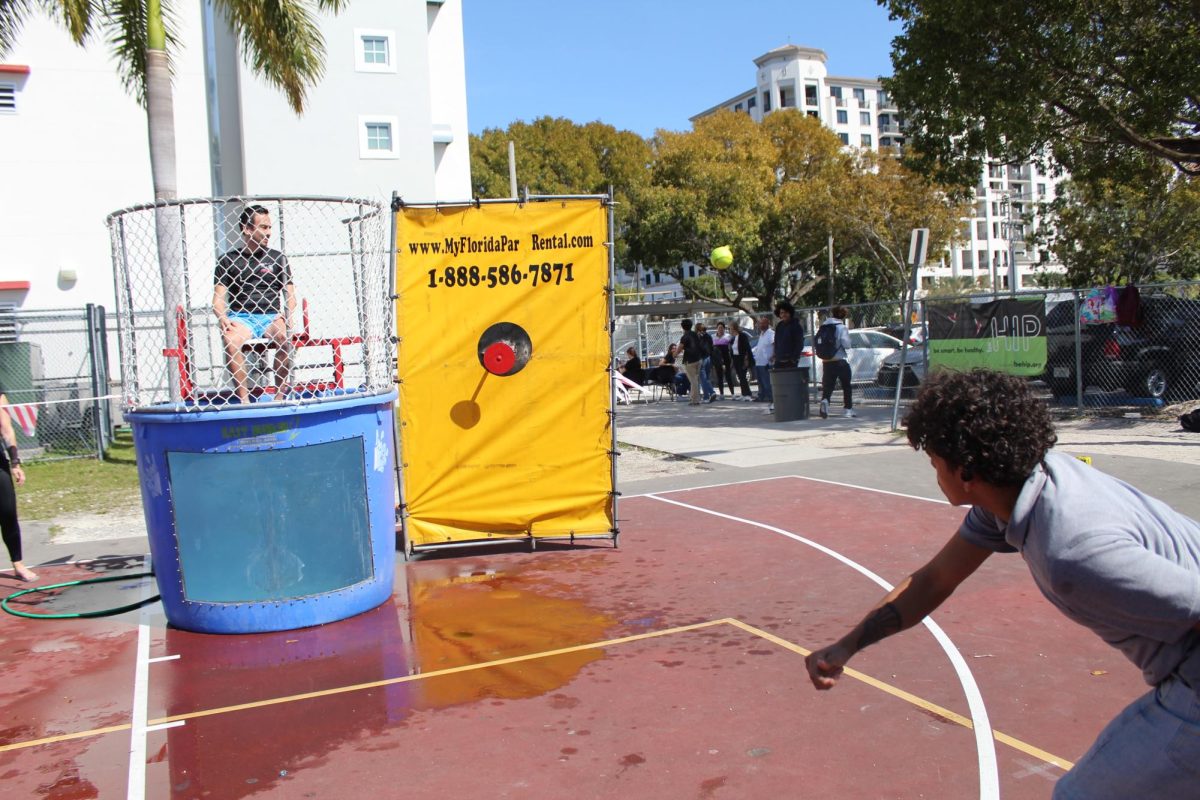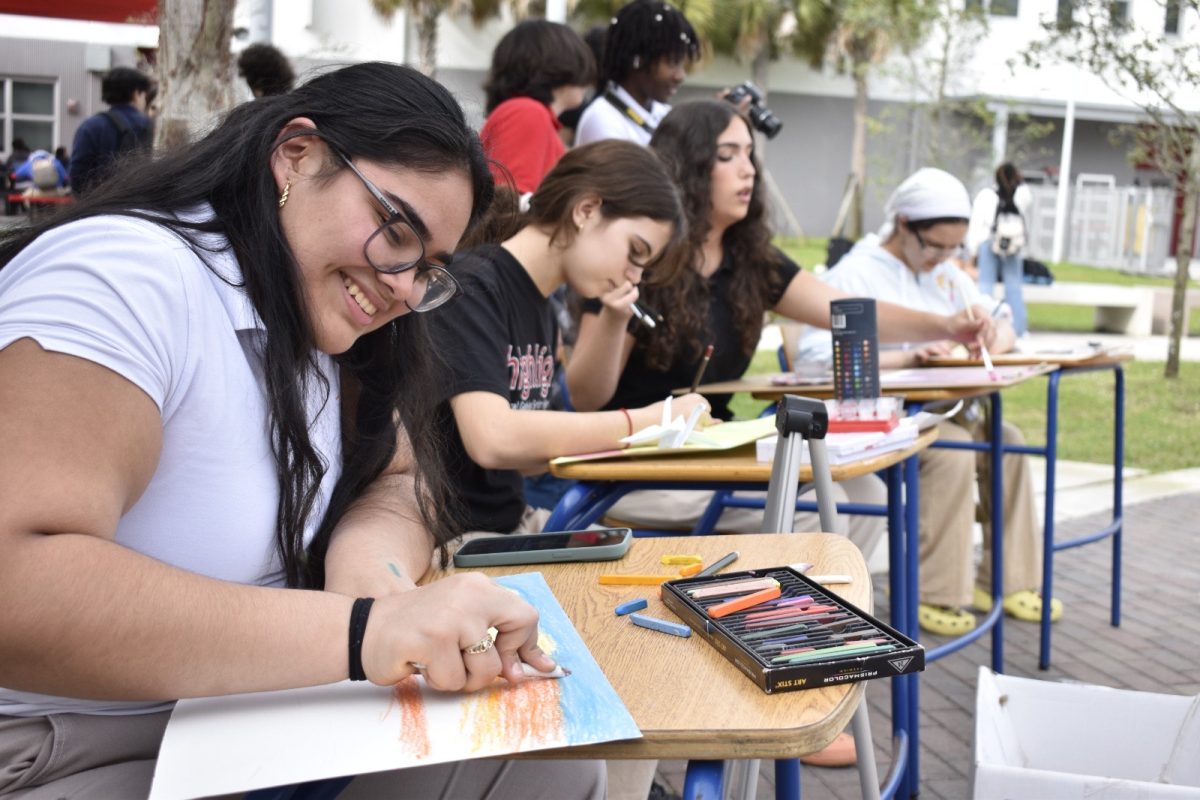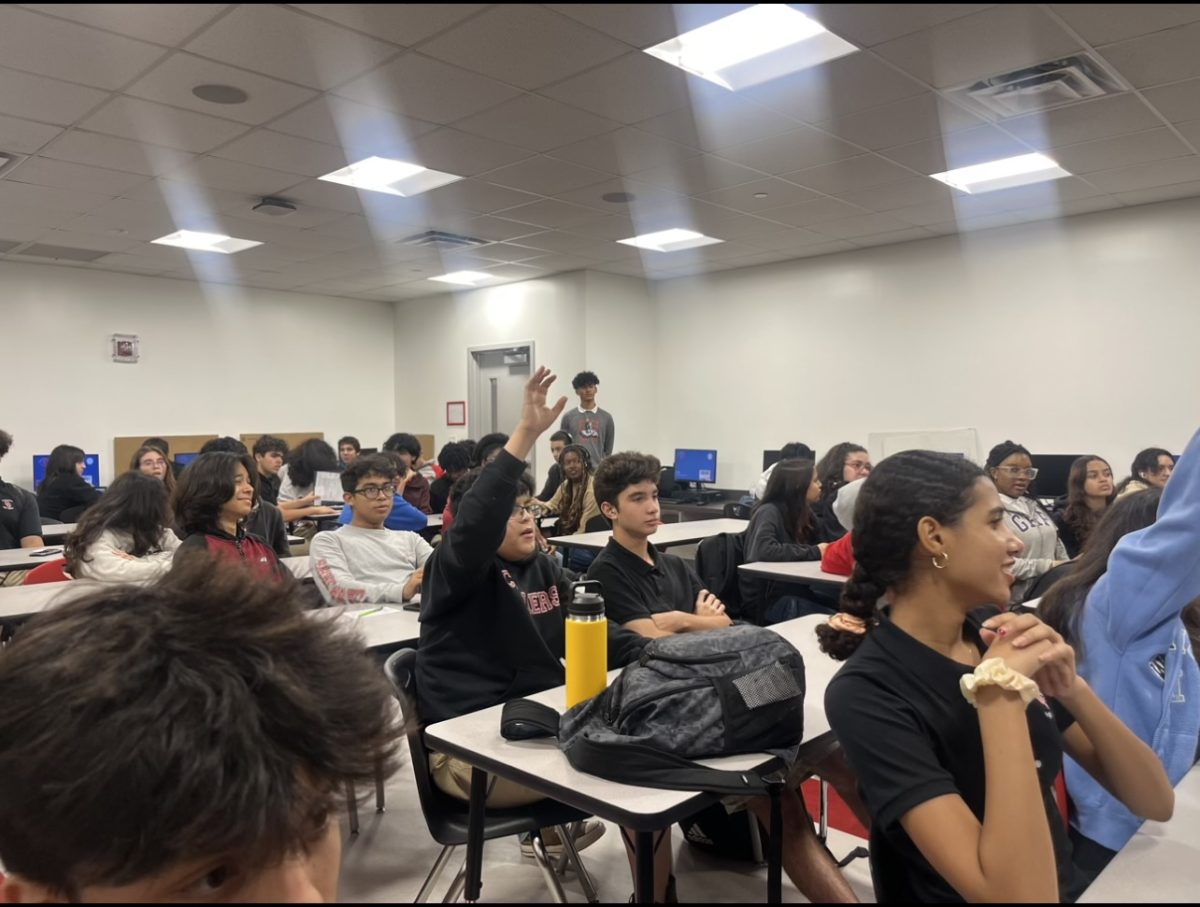The first Republican primary debate of 2023 has heralded many surprises for the nearly 13 million viewers around the United States. Held on Aug. 23 in Milwaukee, Wis., the debate acted as platform to make candidates’ positions on divisive issues known, debating abortion, climate change, foreign policy, education and more. The eight others grappling for the Republican nomination that evening were Arkansas governor Asa Hutchinson, former New Jersey governor Chris Christie, former Vice President Mike Pence, Florida governor Ron DeSantis, Vivek Ramaswamy, former South Carolina governor Nikki Haley, South Carolina senator Tim Scott and North Dakota governor Doug Burgum.
The question of America’s role in Ukraine became a significant point of contention among the Republican candidates, highlighting two contrasting stances in the party. On one side were the interventionist candidates, Haley and Pence, advocating for a robust American stance in support of freedom and opposition to Russia’s President Vladimir Putin. Meanwhile, DeSantis and Ramaswamy questioned whether extending assistance to Ukraine was in alignment with America’s national interests. Ramaswamy took a definitive stance, urging the United States to discontinue its support for Ukraine, while DeSantis suggested the possibility of continued U.S. aid, emphasizing the importance of increased contributions from European nations.
“[Ramaswamy] had a lot of talking points, and had a more active role than I think a lot of people anticipated, which is probably what he had to do since he might be in third or fourth place, and certainly he had a bullseye on his back it seemed, I know he was attacked from several of the other candidates,” Mr. Cipriani said.
During the debate, the Republican candidates did not shy away from expressing their strong opposition to abortion rights. However, there was a clear division among them regarding the pursuit of a federal abortion ban. Haley urged her fellow candidates to be truthful with voters, acknowledging that a federal ban imposing abortion restrictions nationwide was unlikely to pass in the closely divided Congress. She advocated for returning the issue to individual states and discouraged demonizing it, assuring that women wouldn’t face incarceration for having an abortion.
On the opposing side, Pence and Scott openly endorsed a national ban on abortions at least after 15 weeks, with Pence dismissing Haley’s call for state-level consensus as lacking leadership. DeSantis, who had recently signed a stringent 6-week abortion ban into law in Florida, refrained from taking a direct position on a federal ban, focusing on his state’s measures instead.
Viewers and members of the debate alike were surprised by the performance of a candidate that was previously little known before the debate. Obtaining a position in the center of the stage, Ramaswamy astonished many viewers with his prominence in the debate. Ramaswamy attacked his adversaries by calling them bought and paid for and demonstrated strong opinions more consistent with younger conservatives, an audience he could appeal to more than his older opponents. However, this also made him a target throughout the night. Braving an assault on his inexperience from Christie, Haley and Pence, his strategy of starting contention to draw attention to himself contributed to all the buzz surrounding this young candidate.
“I hadn’t heard of many of the candidates who participated except DeSantis and Pence, so seeing people online talking about [Ramaswamy] was more interesting to me than watching the debate itself,” senior Brayan Mendoza said.
After an hour of debate, the mention of Trump’s absence arose. The moderators pointed out that Trump is currently facing over 91 criminal charges in various cases spanning four different jurisdictions. The majority of the candidates signaled their willingness to support Trump even if he were to be convicted. Ramaswamy pledged to pardon Trump should the opportunity arise. In contrast, Christie, a former U.S. attorney who has frequently clashed with Trump, argued that regardless of one’s stance on the criminal charges, the behavior exhibited was not fitting for the office of the president of the United States.
“If I was one of his handlers, I would have to agree that he has such a commanding lead that nothing good can come from him showing up. He can only lose points by doing so, so he skipped it altogether, which politically was probably the right thing to do, strategically speaking,” Mr. Cipriani said.
As the dust settles, the candidate that comes out on top must grapple with implementing the policies discussed during the debate, which can either promote stability or generate further controversy. This debate is believed to reflect the ongoing tensions within American politics and the enduring struggle of differing opinions, not only between rival political parties but also within their own ranks. Looking toward the future, a range of possible policies may emerge, reflecting the competing visions of the nation’s leaders and their commitment to addressing pressing issues.



